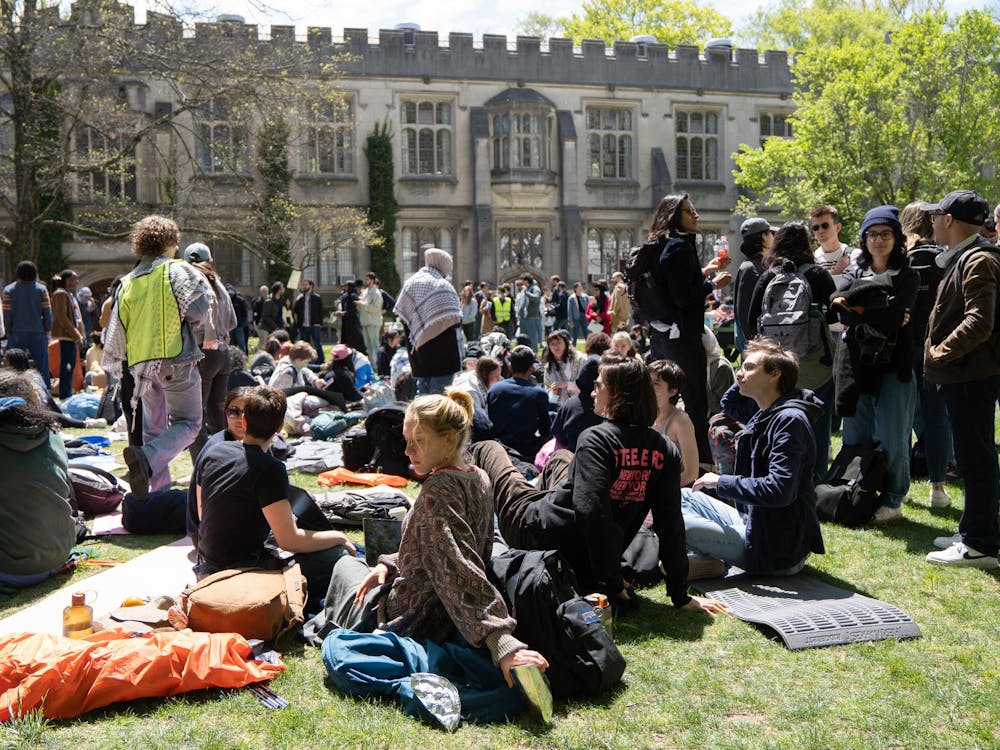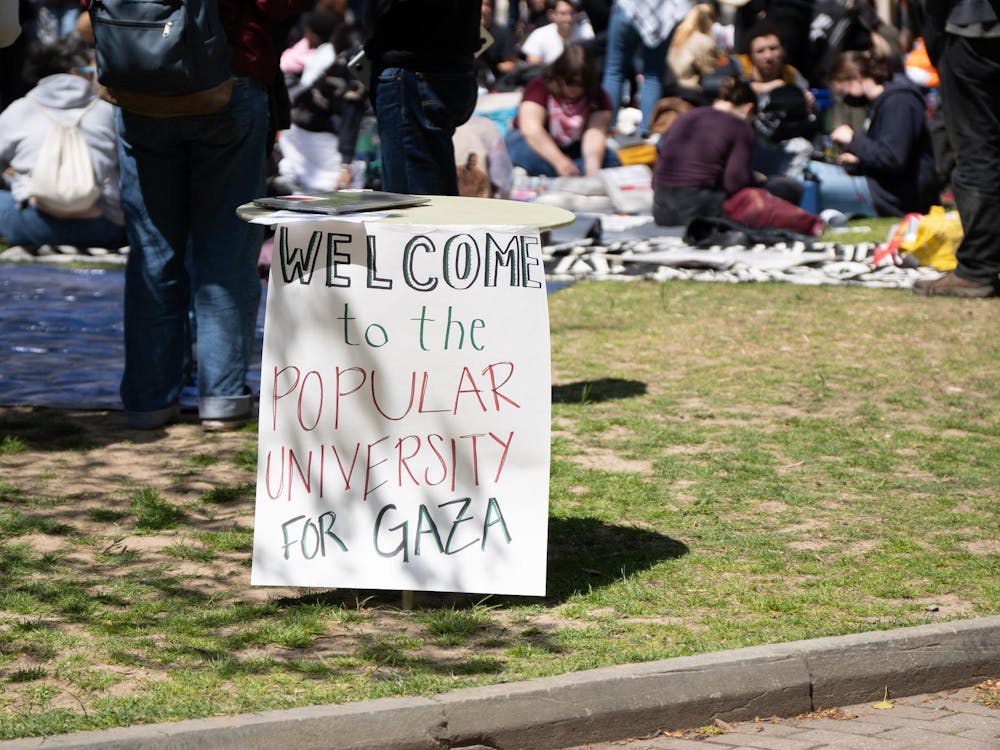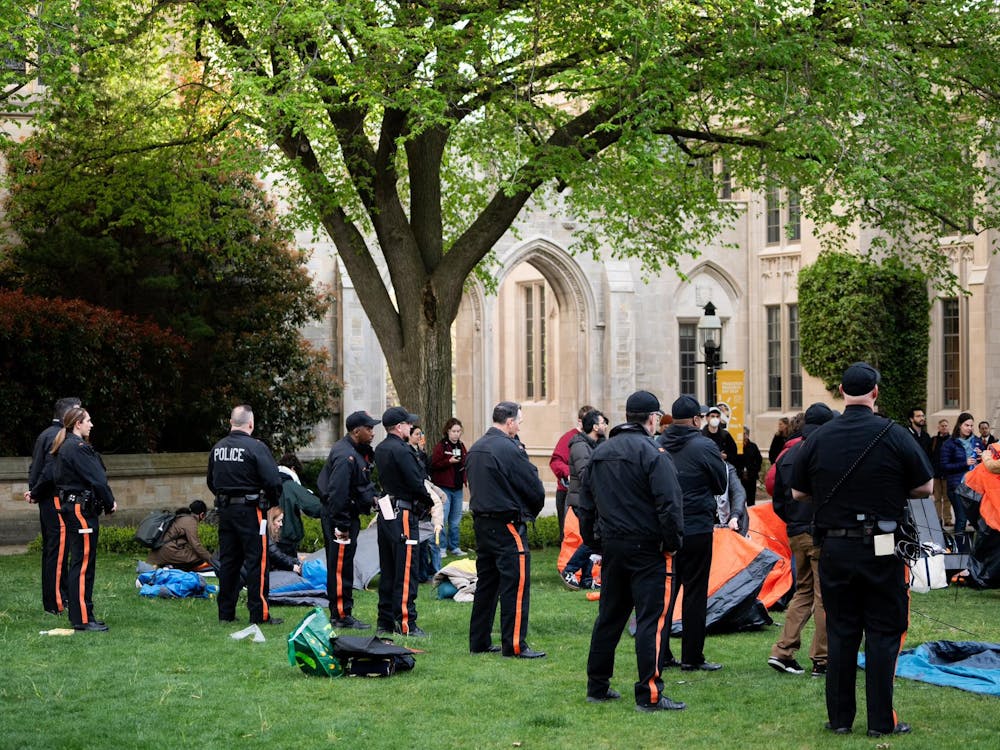The Office of International Programs at Princeton University posts lots of post-graduate fellowships. 54 to be exact. The fellowships provide potential opportunities for Princeton students to continue their education in the US or abroad in a wide range of topics, from studying the Senegalese language of Wolof to atmospheric sciences, oceanography or hydrology.
Until recently, there were 55 fellowships, but one, the Korean Government Scholarship, explicitly prohibits any students living with HIV from applying, and yesterday Princeton removed the scholarship from the OIP website.
The scholarship is intended for non-Korean citizens who want to pursue graduate study — either a doctoral or master’s degree — in the Republic of Korea, or South Korea. For students interested in the scholarship, the prohibition against being HIV positive is not immediately obvious. Following the hyperlink provided on the University’s website directs students to a page that says that the scholarship’s eligibility requirements are to “be in good health, both mentally and physically, to stay in Korea for a long period of time.” However, should a student decide to apply, they would find in the application materials the following stipulations: (1) students have to take an HIV test as part of the medical assessment, and (2) applicants who test positive for HIV or illicit drugs will be disqualified and their scholarships canceled.
This prohibition is unexpected, given that the Korean government has spoken out against such restrictions for a number of years. For example, in 2010, the Korean government pledged to remove all HIV travel restrictions on foreigners, telling the Human Rights Council that the Korean government reaffirmed its commitment to remove restrictions “as part of the effort to eliminate all forms of discrimination."
In 2011, the Korean government joined in the2011 United Nations General Assembly Political Declaration on HIV/AIDS, which had a target to “[e]liminate HIV-related restrictions on entry, stay and residence.” In 2012, the Korean Government spoke out against HIV restrictions at the International AIDS Conference in Washington.
In practice, the government hasn’t always lived up to these pledges. For example, in 2011 ROK’s Ministry of Justice instituted a policy that required drug and HIV testing for certain types of work visas, stating that Koreans needed “measures to deal with the threat [foreigners] posed to our society’s public order and our people’s health.”
When new diseases appear, it is not uncommon to blame foreigners. But it’s not good public health policy. For starters, it gives native Koreans a false sense of security that only other people are at risk of HIV transmission and that border control is a better means of HIV prevention than other public health approaches. It also stigmatizes the disease for Korean nationals. As Joseph Amon, Princeton lecturer and Vice President for Neglected Tropical Diseases at Helen Keller International notes, “the high levels of stigma caused by linking HIV and mandatory testing to foreigners has made many ethnic Koreans choose to forgo testing due to fear of prejudice.”
While many countries, including the US up until the Obama administration, maintained a travel ban on HIV positive travelers, this policy has long been considered ineffective and counterproductive from a public health standpoint. In 1987 the World Health Organization took the position that there was no justification for restrictions on travel for people living with HIV, and the United Nations High Commissioner for Human Rights, UNAIDS and even UN Secretary General Ban Ki-Moon have spoken out against the practice.
“Perhaps a decade or more ago, many countries had restrictions on HIV positive travelers and applicants for programs on the basis that they would be a burden on the country or institution they were visiting as they would not be considered in good health to take advantage of the programs,” says Jimmy Kolker, assistant secretary for Global Affairs of the U.S. Department of Health and Human Services in Washington, DC in response to this investigation. “However, now with antiretroviral therapies, being HIV positive should not factor in whether or not people should have access to benefits or whether there are restrictions on travel. Now we have so much evidence, that I can say with confidence that discrimination against HIV positive people is a fundamental question of rights over any justification medical or otherwise and certainly cannot be made on the basis of a threat to people involved in the program or concerns over transmission.” As one of the signatories to the International Covenant on Civil and Political Rights, the government of the Republic of Korea has agreed to obligations to bar discrimination based on HIV status.
But despite the government’s pledges to the international community, discriminatory policies continue to exist against foreigners. Such was the 2015 case in which foreign teachers were required to take HIV tests — a policy that the UN Committee for the Elimination of Racial Discrimination considered racial discrimination in violation of international law. The arguments made then could be similarly applied to the violations against foreign students by the eligibility requirements of the Korean Government Scholarship.
When contacted by The Daily Princetonian and asked about their view of the eligibility criteria of the Korean Government Scholarship on its website, OIP removed the scholarship. Staff from the Office said that they had been unaware of such eligibility requirements within the scholarship guidelines. While the University may not be directly involved in offering programs such as this, hosting them on Princeton websites may violate U.S. laws, such as the American with Disabilities Act, protecting students from discrimination.
The Americans with Disabilities Act and Section 504 of the Rehabilitation Act, an earlier law protecting people with disabilities from discrimination, offer broad protections for U.S. students with disabilities, including those living with HIV. While these laws do not apply to the actions of the ROK, the U.S. Department of Education’s Office for Civil Rights and the Office of Special Education and Rehabilitative Services have been proactive in alerting schools to their affirmative duty to prevent such instances, including the promotion of discriminatory, harmful or humiliating “statements or conduct” targeting people with disabilities.
According to the Department of Education, disability harassment may include creating “a hostile environment by interfering with or denying a student’s participation in or receipt of benefits, services or opportunities in the institution’s program.” Promoting a scholarship that some Princeton students are ineligible to apply for may have negative impacts on these students and on their relationships with their Princeton advisers and fellow students, possibly compelling them to explain why they are not pursuing these opportunities or making them appear to be lacking ambition.
Similar to other universities’ stances on discriminatory practices, Princeton’s official policy states, “[w]hen the University becomes aware that a member of the University community may have been subjected to or affected by discriminatory and/or harassing behavior, the University will take prompt action, including a review of the matter and, if necessary, an investigation and appropriate action to stop the discrimination and/or harassment.”
Unlike other scholarship programs which do not require HIV testing and merely indicate it as encouraged by the Republic of Korea for visiting travelers, such as the Fulbright program and the Teach and Learn in Korea program, in which Princeton students have participated according to Princeton’s Department in East Asian Studies, the Korean Government Scholarship explicitly infringes on the University’s policies and those of overseeing organizations with its mandatory testing requirement.
When asked about the University’s stance on discriminatory programs such as the Korean Government Scholarship, Director of Fellowship Advising Deirdre Moloney, Director of OIP Nancy Kanach and Vice Provost for International Affairs and Operations Anastasia Vrachnos reportedly considered several options including removing the posting, keeping the listing with disclaimers or taking an active position against discriminatory policies, before releasing the following official statement: “Princeton is committed to maintaining a community in which all members can participate fully and equally.Based on a review conducted by OIP and the Office of Institutional Equity and Diversity, a scholarship posting stating that HIV positive individuals are ineligible (without any reference to specific health-related reasons for such a restriction) contradicts our policies and commitment to non-discrimination. The posting has been removed.”
But this decision may have fallen short of the mark. As Amon states, “Princeton’s statement that they are removing the posting of the Korean Government Scholarship is the right decision. But suggesting that the problem is that the scholarship does not include specific health-related reasons misses the point. As the WHO, UNAIDS and the U.S. Department of Health and Human Services all plainly state, there is no medical reason that justifies discrimination against people living with HIV from pursuing educational opportunities or traveling to another country.”In the past two years, the University has confronted many issues regarding its stance on taking positions — whether it was enough to protect students, such as removing discriminatory policies from websites as in this case, or if they needed to politically engage as a public “spokes-body” against unjust practices. With student-advocated initiatives such as the campaigns to divest from fossil fuel companies in 2015, from West Bank and Gaza in 2014, from companies associated with the genocide in Darfur in 2006 and from apartheid South Africa in 1985, we can see the student body demanding that the University should practice the values it preaches. In order to live up to their non-discrimination policies, and promote a world that is inclusive, universities need to speak out against discrimination like the discriminatory policy embedded in the Korean Government Scholarship. This would be a particularly good step for a university that professes to be “in the nation’s service and in the service of humanity.”








